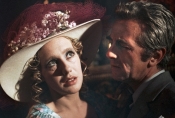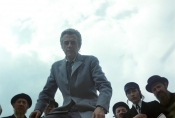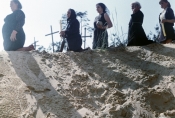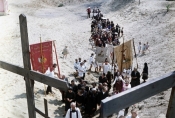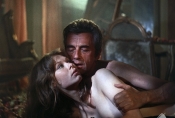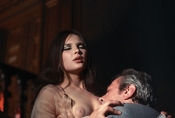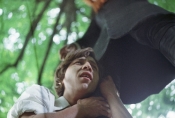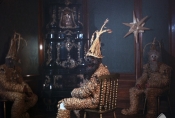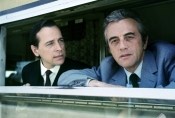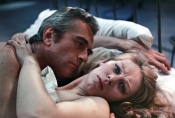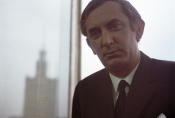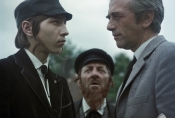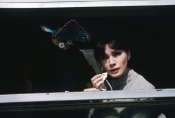HOW FAR FROM HERE, AND YET HOW CLOSE [1971]
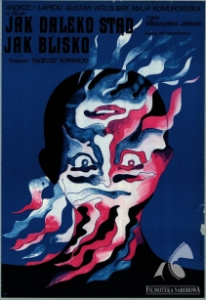
year:
- 1971
release date:
- 5 V 1972
runtime:
- 93 min
directed by:
- Tadeusz Konwicki
written by:
- Tadeusz Konwicki
director of photography:
- Mieczysław Jahoda
cast:
- Andrzej Łapicki [Andrzej], Gustaw Holoubek [Maks], Maja Komorowska [Musia], Anna Dziadyk [a girl], Alicja Jachiewicz [Joasia, Andrzej’s first wife], Ewa Krzyżewska [Zosia], Ewa Lemańska [the bride], Jerzy Cnota [a singer], Edmund Fetting [Szymon], Marek Jasiński [Orthodox priest], Stanisław Jasiukiewicz [captain of the police], Zdzisław Maklakiewicz [Włodek], Piotr Pawłowski [Andrzej’s father]
edited by:
- Wiesława Otocka
music by:
- Zygmunt Konieczny
production design:
- Ryszard Potocki
produced by:
- Zespół Filmowy „Plan”
executive producer:
- Tadeusz Urbanowicz
awards:
-
• Lubusz Film Summer Łagów 1972: Special Jury Prize, award for the best actress in a leading role for Maja Komorowska, award for best supporting actor for Józef Nalberczak, best sound award for Jerzy Wroński
• Warsaw Mermaid 1972
• IFF San Remo (Italy) 1973: Special Award for the screenplay
About the film
A film from the outstanding writer and film director, Tadeusz Konwicki. It is Konwicki’s first attempt to adapt the specific, poetic atmosphere of his prose for the screen: the free intermingling of times and places, the obsessive return to childhood memories of the lost Vilnius, and reminiscences of the war.
The film has a dreamlike quality. 40-year-old Andrzej embarks on a symbolic journey into the past. He is trying to find an explanation for the suicide of his friend, Maks. Ghosts of people who were once close to the hero return in his fantastic visions.
A group of masqueraders in straw costumes and a failed actor, Włodzio, follow in his wake. During the May Day parade, Andrzej meets Musia, a girl he fell in love with while fighting as a partisan, who had actually died in Siberia. He talks to his long-dead father, trying in vain to learn the truth about his origins. He knows that he was an illegitimate child. He finds a nineteenth-century Orthodox Church and sees the bride fleeing from the altar because she does not want to marry a Russian. Along with Włodzio, he comes out of the church into the modern-day streets of 1970s Warsaw. A police patrol car takes them to a film set. Lying on the cobblestones is the body of screenwriter, Maks. He has just jumped out of the window of a skyscraper. Interviewed by the police, Andrzej is unable to say anything significant about the life of his friend. In a dream-like vision, he is celebrating his forty-fourth birthday. In the crowd of guests are both the living and the dead. He enters an enormous office building and finds his first wife, Joasia, there, who rejects his advances. He returns to the land of his childhood and attends the funeral of a Jewish suicide victim. He notices his childhood friend, Szloma, and warns him of the coming Holocaust. He accompanies his old mother to a church procession and clumsily attempts to make contact with her. The masqueraders following Andrzej take off their costumes and he recognises his comrades from the partisan days. Under one of the masks, Musia is hiding. She encourages Andrzej, who is about to carry out a death sentence on a traitor collaborating with the Germans. Andrzej shoots the man, who turns around to face him, and the horrified hero sees that he has killed Maks. After a while, the dead man gets up and breaks bread with his friend. The film ends with an image of a Jew hovering above the city in a sea of flames.
Jan Słodowski, Leksykon polskich filmów fabularnych, Warszawa 1996
